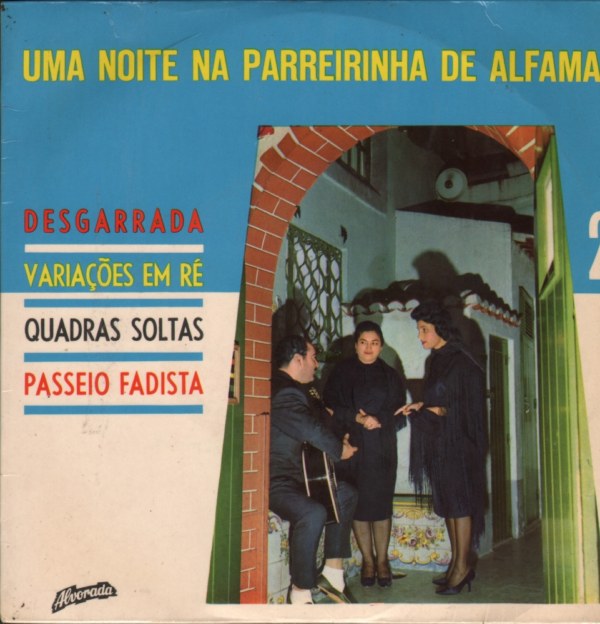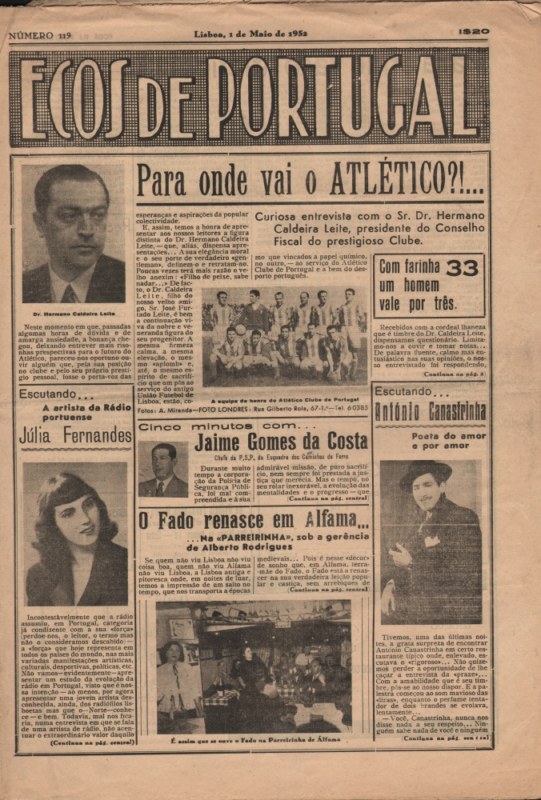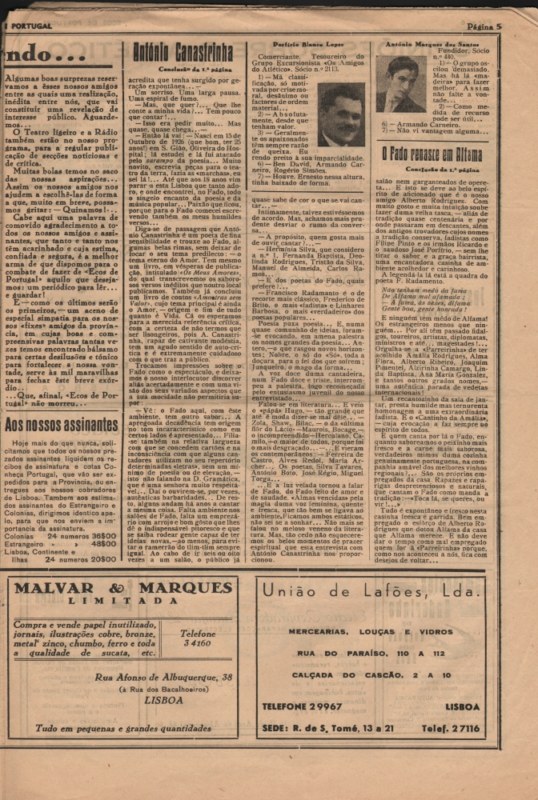Know more:
Argentina Santos
(N. 6 February, 1924 - M. 18 November, 2019)Maria Argentina Pinto dos Santos, since 1950 at the head of her typical restaurant “Parreirinha de Alfama”, was born in Lisbon, at the quarter of Mouraria.
Unlike other renowned women singers who, very young, already sang Fado in public, Argentina Santos only started her artistic career after the opening of that restaurant, where she went to work as a cook, with 24 years old. After leaving the kitchen, Argentina Santos walked round the tables, always asked to sing a Fado. Her answer became a legend: “I’m here to cook for my costumers”.
At “Parreirinha de Alfama”, Argentina Santos sang with many fado singers who marked the History of Fado in Portugal: Berta Cardoso, Lucília do Carmo, Alfredo Marceneiro, Celeste Rodrigues, Mariana Silva, Natércia da Conceição, Natália Bizarro, Helena Tavares, Maria da Fé, Leonor Santos, Beatriz da Conceição, Fernanda Maria – who started her career at “Parreirinha de Alfama” –, Flora Pereira, Júlio Peres, among many others.
Thanks to the authenticity of her interpretations and to a very personal style, she immediately imposed herself as one of the most gifted and promising Fado singers of her time, becoming since then, for the experts and melomaniacs of Fado, a trustworthy interpreter of the Song, in the line of women singers of the past. The Fado songs “As Duas Santas” (The two Holy Women) and “Juras” (Swears) were, among others, great successes of this artist who released her first record in 1960.
The non recording and the refuse to make shows led her to the interruption of a more than promising career. A lot was said over this attitude. About that period of her life, says the singer: “By that time I had a mate who didn’t like to see me singing in public. Two years after his death I married again and I had the same problem. Now that I’m free, I seize the invitations addressed to me. The opposite of before, when I had to refuse them. I’m very well received abroad and that gives me great pleasure, for what I really like is to sing. To sing, how Maria da Fé says, ‘till my voice hurts’ (lyrics of a Fado song)”.
Although mostly confined to her performances at “Parreirinha de Alfama” and one or other presentation in public or private shows, that didn’t stop Argentina Santos to become known and appreciated as a genuine woman singer, perhaps one of the most representative ones of the traditional school of Fado.
Currently, she is the most requested Portuguese fado singer, dignifying and divulging Fado throughout the world, our most representative Song, in a unique and sublime way, fairly acclaimed as the last woman singer of Fado of Lisbon’s Song old tradition.
Venezuela, Curaçao, Brazil, France (1996, 1997, 1998, 1999), Konzerthaus in Vienna - Ostrich, Queen Elisabeth Hall in London - England, La Cité de La Musique in Paris - France, Cathedral of Marseille - France, Dufe Paris - Greece, Holland, Scotland, the Italian tour in Perugia, Modena and Torino, are some of the international concerts of this pure and genuine artist. In Portugal she performed at Coliseu dos Recreios, Teatro da Trindade, Teatro Eunice Muñoz, Teatro Roma (with Simone de Oliveira), at the re-opening of Teatro Tivoli and at Centro Cultural de Belém.
In 2004, she was rendered homage with a career concert, during the event “Festa do Fado”, in Lisbon.
She sang regularly at her Casa de Fados and, in addition to her individual concerts, she also participated in Ricardo Pais' project “Cabelo Branco é Saudade”. This was a show directed by Ricardo Pais and premiered at the Teatro de São João, in Porto, in July 2005, where, in addition to Argentina Santos, the fado singers Celeste Rodrigues, Alcindo de Carvalho and Ricardo Ribeiro participated.
The Amália Rodrigues Foundation, in its first awarding of prizes, in 2005, distinguished Argentina Santos with a Career Award.
That same year, her restaurant, "Parreirinha de Alfama", was also awarded the trophy for Casas de Fado delivered in the Grande Noite do Fado contest.
Argentina Santos passed away, at Casa do Artista, on November 18, 2019.
Source:
“Diário de Notícias”, 27 de Abril de 2000.
Baptista-Bastos (1999), "Fado Falado", Col. "Um Século de Fado", Lisboa, Ediclube;
Carita, Alexandra e Jorge Simão (2006), "Fados Nossos", Lisboa, Alêtheia Editores.
Programa do espectáculo "Cabelo Branco é Saudade" (2005), Porto, Teatro Nacional de São João.
Museu do Fado - Entrevista realizada em 8 de Julho/2006.
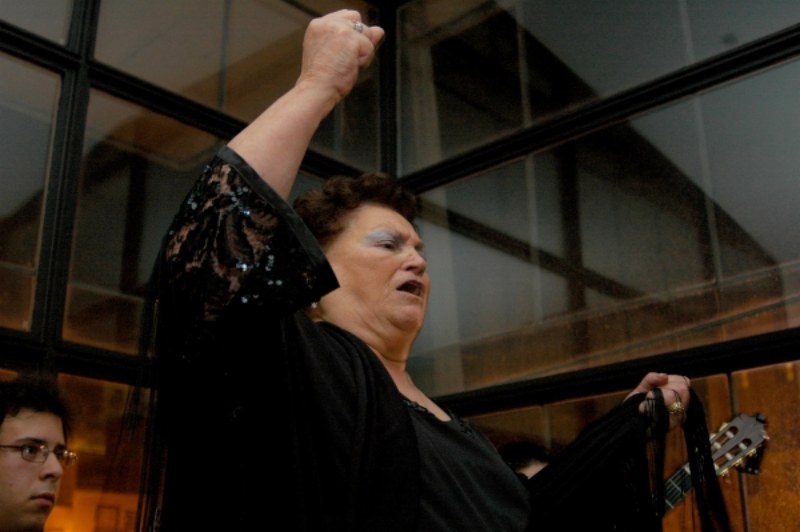
Argentina Santos Lançamento do livro "Fados Nossos" Museu do Fado, 20 de Janeiro de 2007
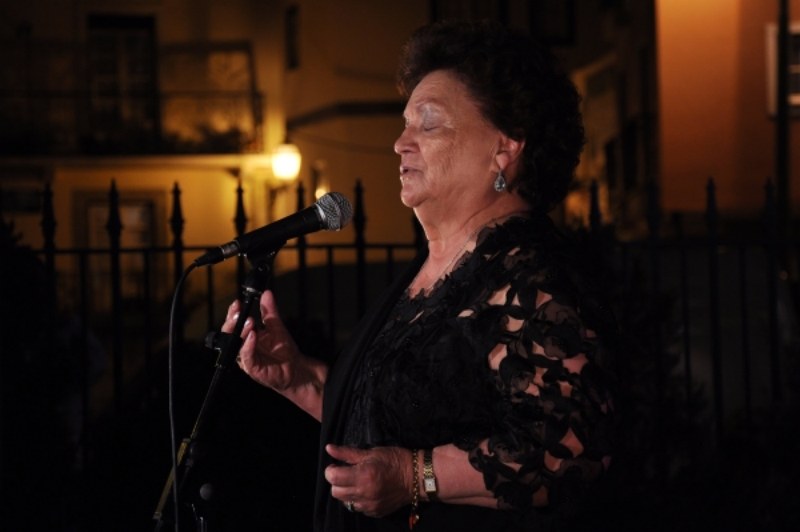
Argentina Santos Museu do Fado, 30 de Junho de 2009
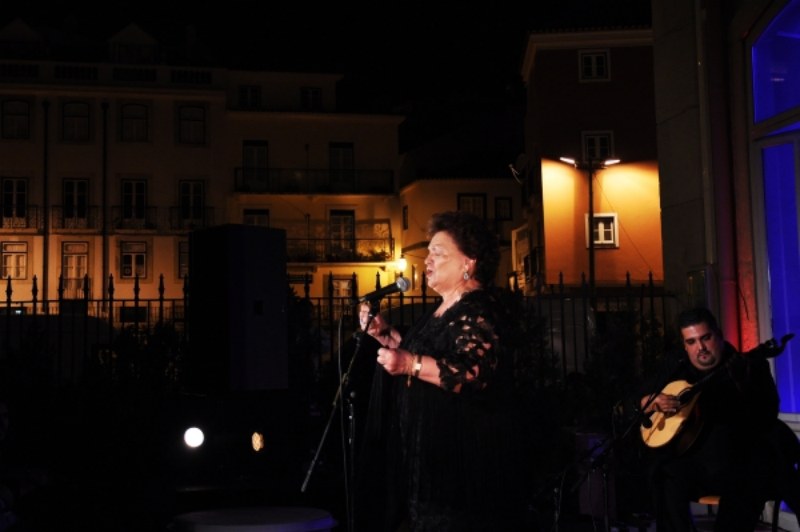
Argentina Santos Museu do Fado, 30 de Junho de 2009
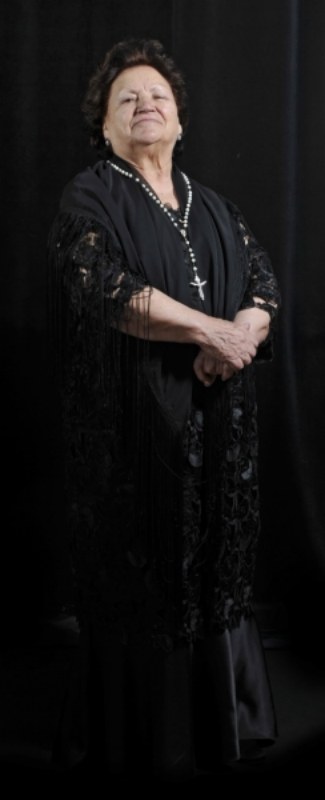
Argentina Santos Museu do Fado, Fevereiro de 2010
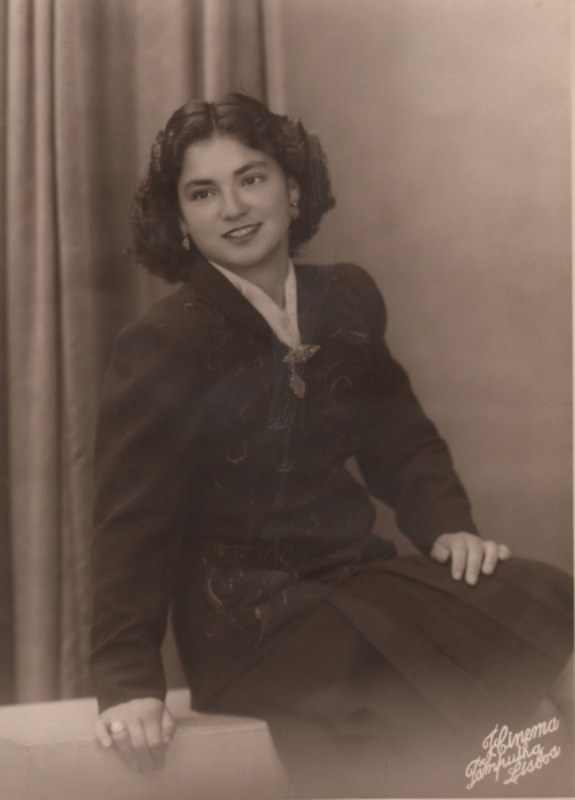
Argentina Santos s/d.
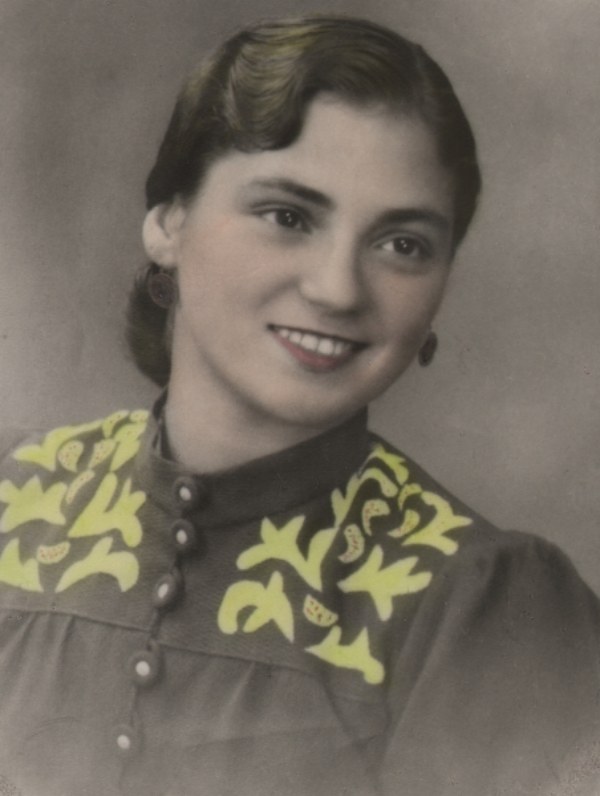
Argentina Santos s/d.
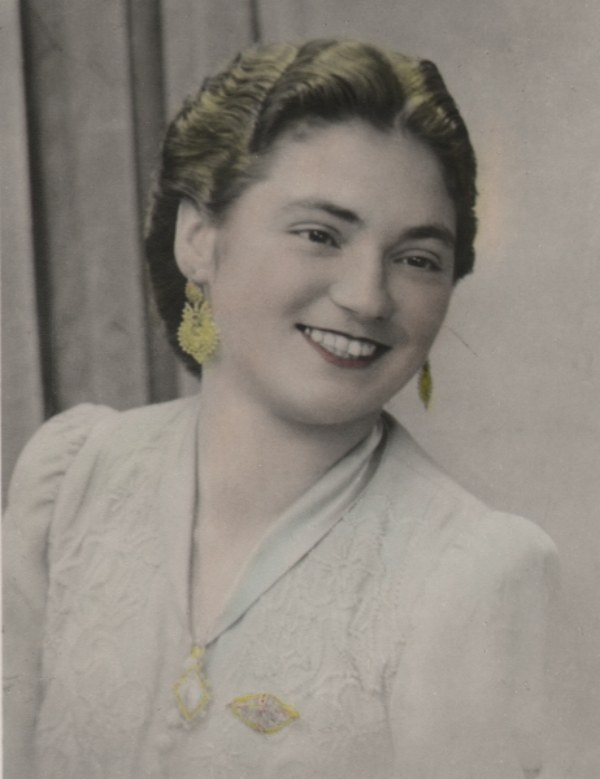
Argentina Santos s/d.
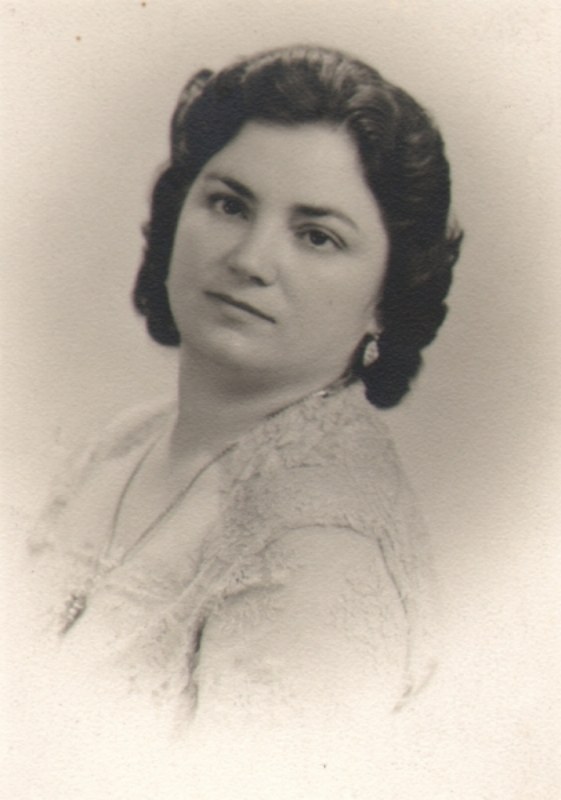
Argentina Santos s/d.
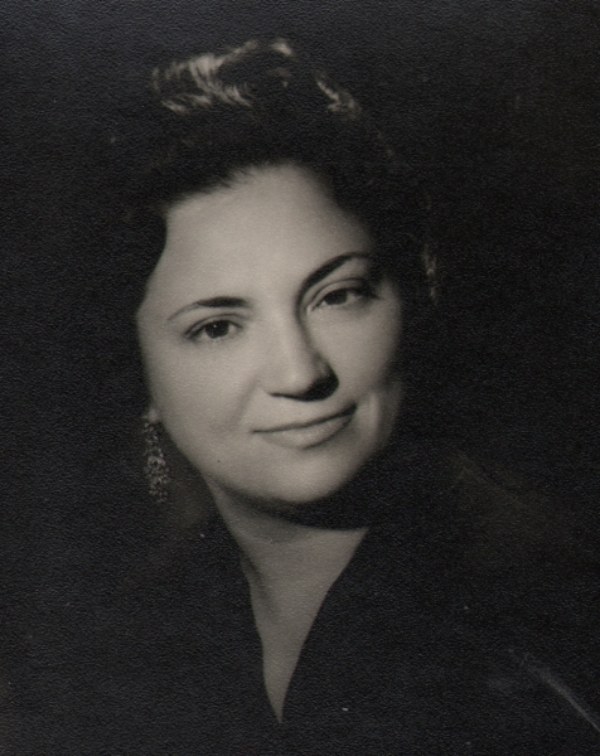
Argentina Santos s/d.
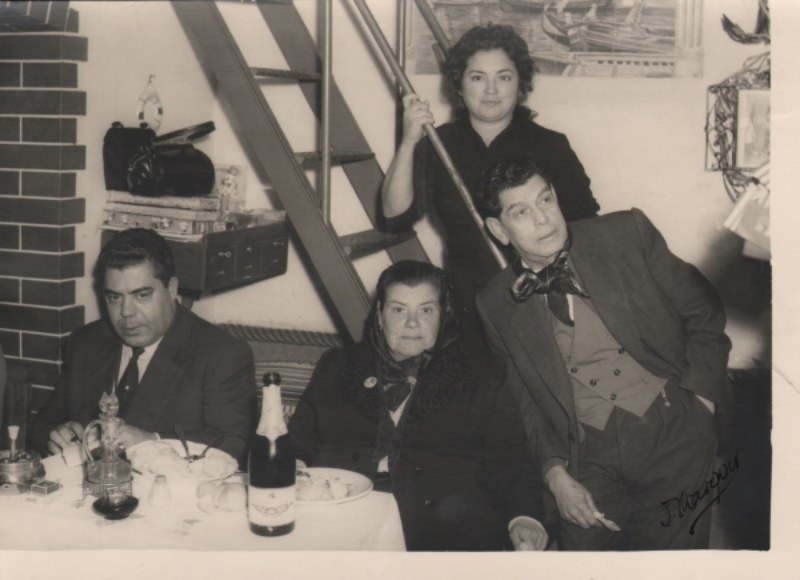
Alberto Rodrigues, Argentina Santos e Alfredo Marceneiro Parreirinha de Alfama, s/d.
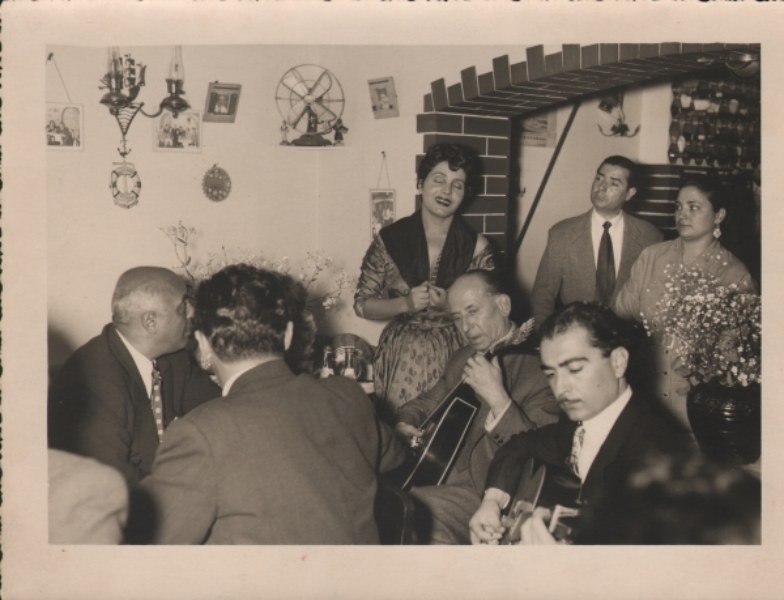
Amália Rodrigues e Argentina Santos Parreirinha de Alfama, 6 de Maio de 1957
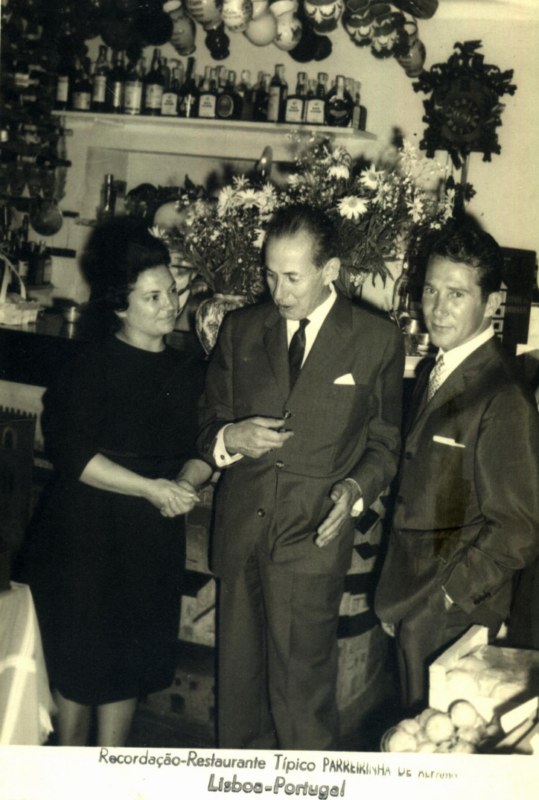
Argentina Santos s/d.
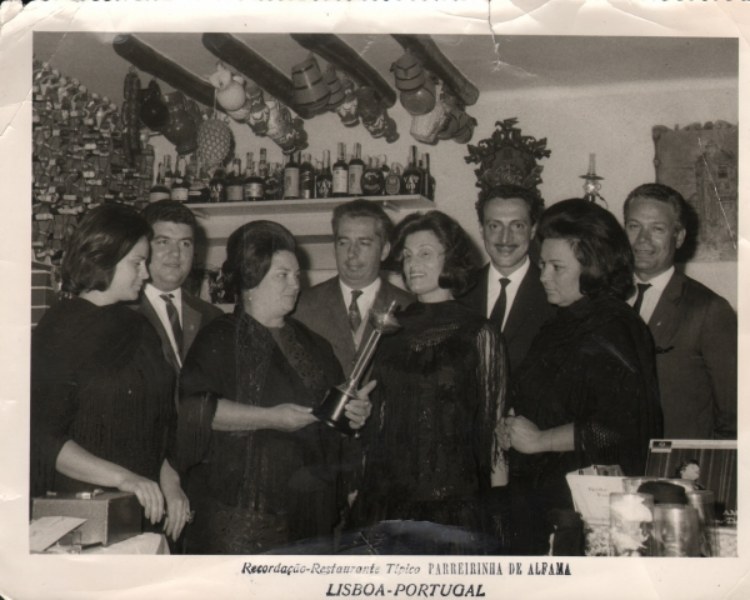
Argentina Santos, Celeste Rodrigues e Lina Maria Alves Parreirinha de Alfama, s/d.
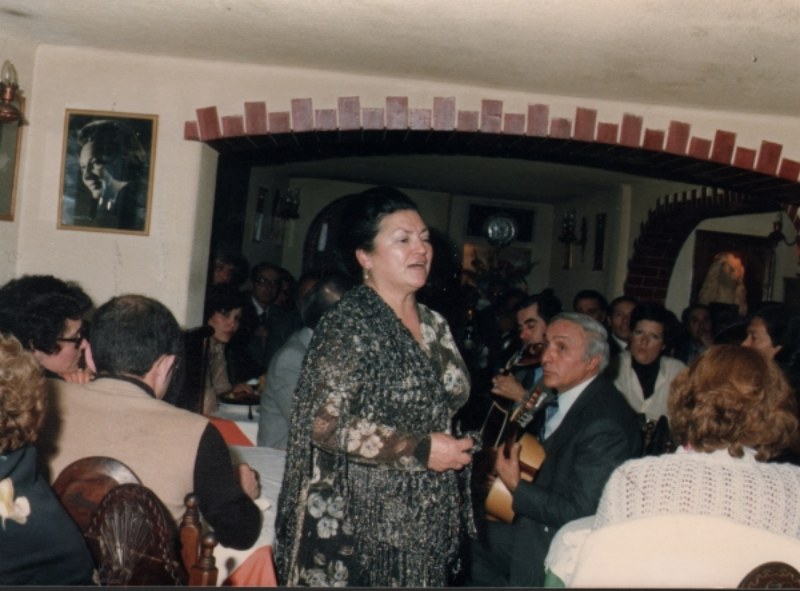
Argentina Santos Parreirinha de Alfama, s/d.
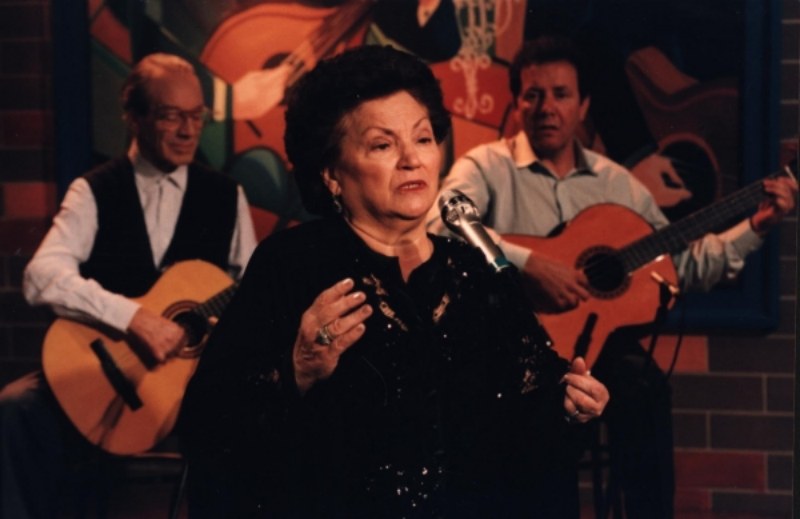
Argentina Santos Programa "Um Abraço Português" RTP, 16 de Novembro de 1997 Foto de Nuno Ortega
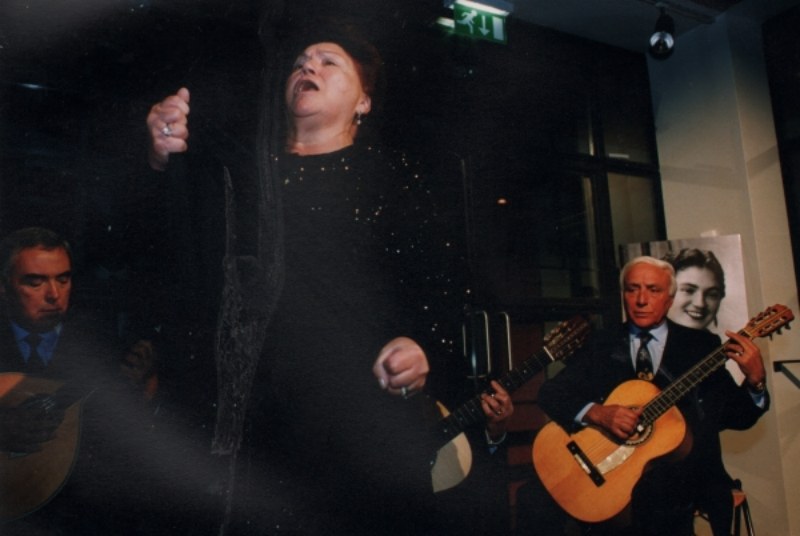
Argentina Santos Museu do Fado, 28 de Novembro de 1999
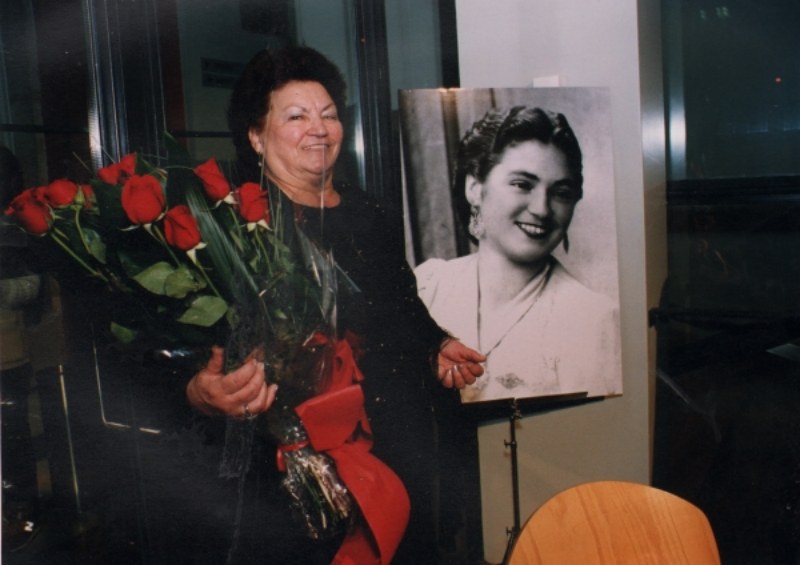
Argentina Santos Museu do Fado, 28 de Novembro de 1999
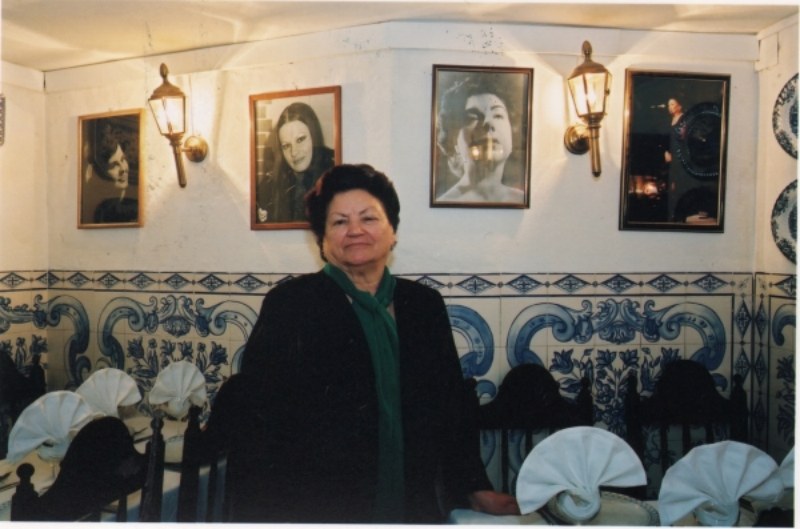
Argentina Santos Parreirinha de Alfama, 2000
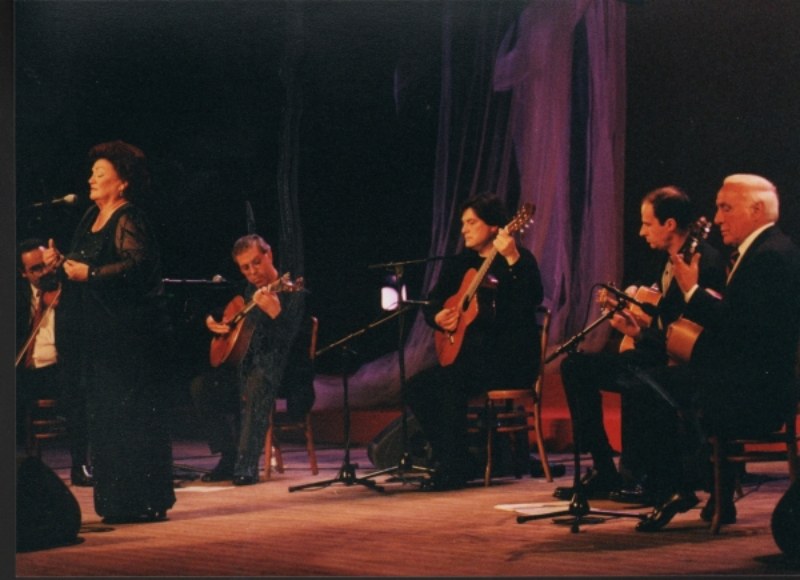
Argentina Santos Coliseu dos Recreios, 28 de Abril de 2000
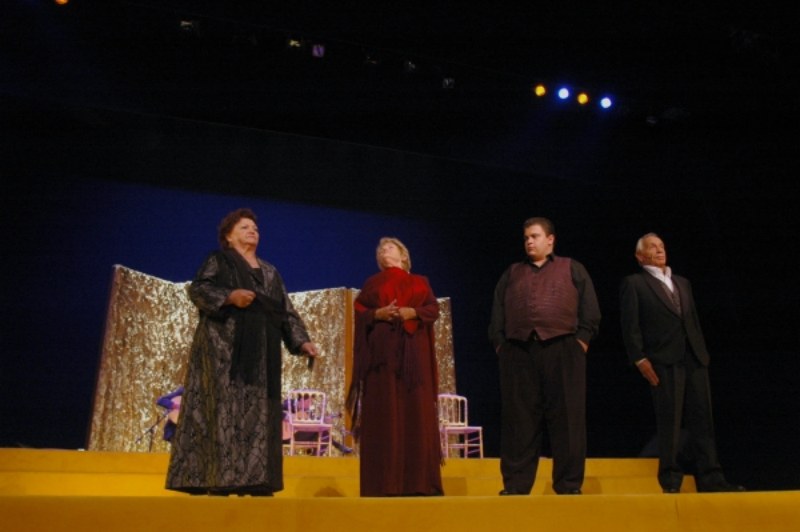
Argentina Santos, Celeste Rodrigues, Ricardo Ribeiro e Alcindo de Carvalho "Cabelo Branco é Saudade" Teatro São Luiz, 20 de Outubro de 2005
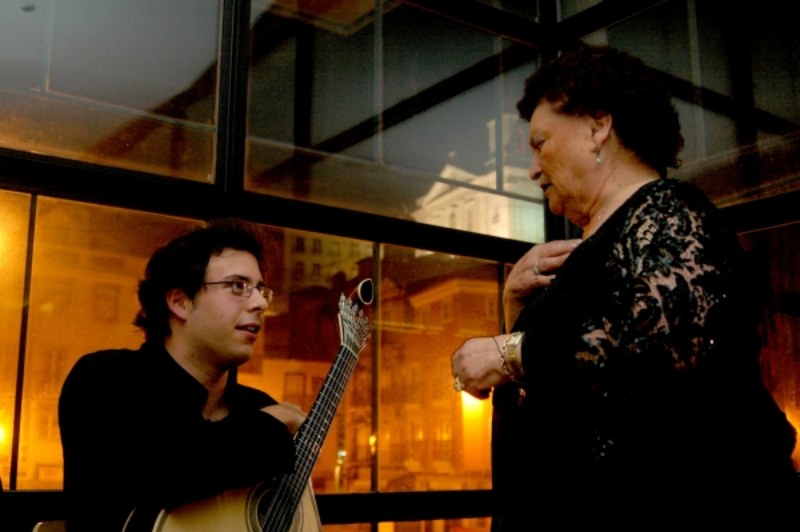
Ricardo Parreira e Argentina Santos Lançamento do livro "Fados Nossos" Museu do Fado, 20 de Janeiro de 2007
-
O Poeta Apaixonado Argentina Santos (Fernando Teles / Alfredo Marceneiro)
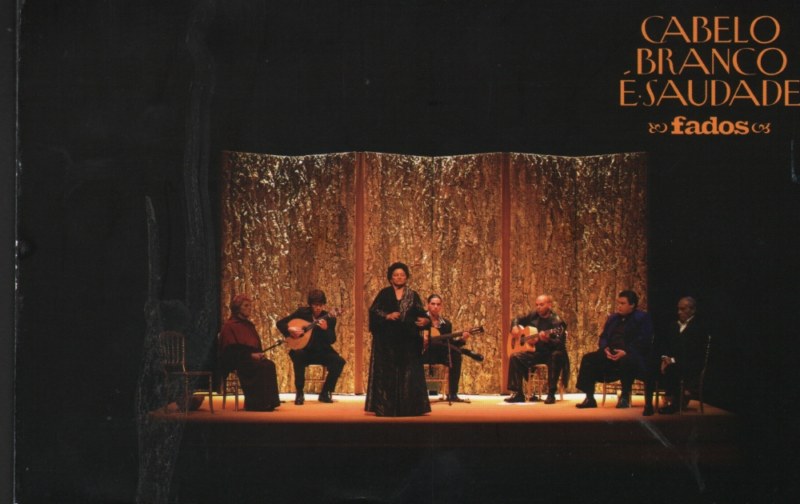
Cabelo Branco É Saudade, DVD Promo Music, 2005
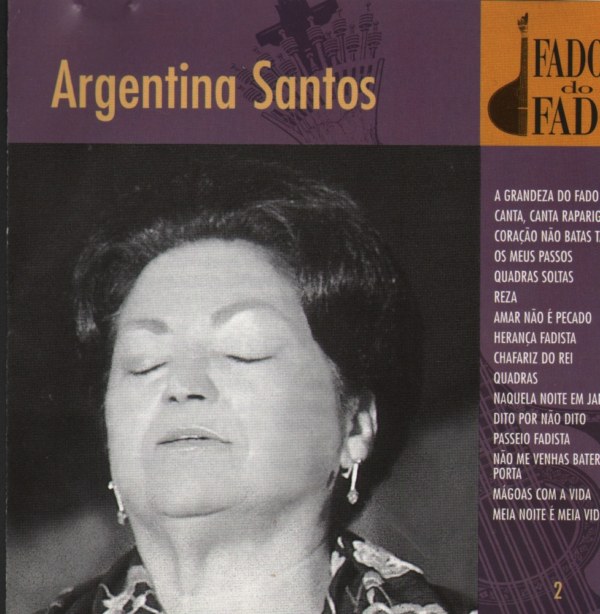
Argentina Santos, Col. Fados do Fado, Movieplay, 1998
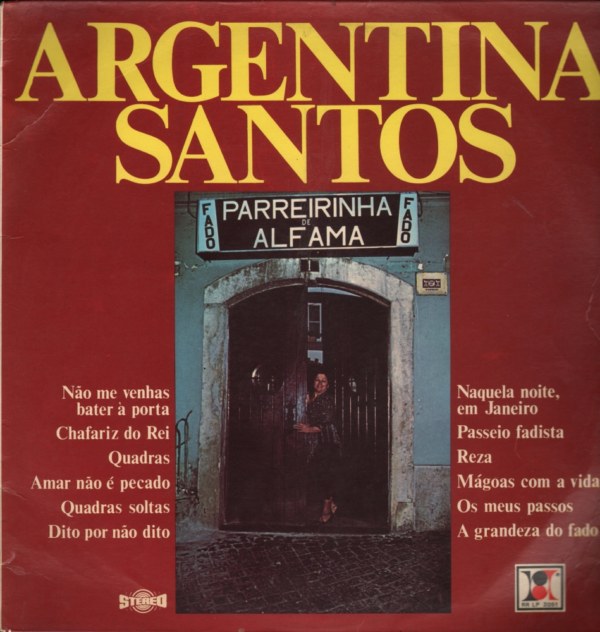
Argentina Santos, LP Riso e Ritmo, 1978
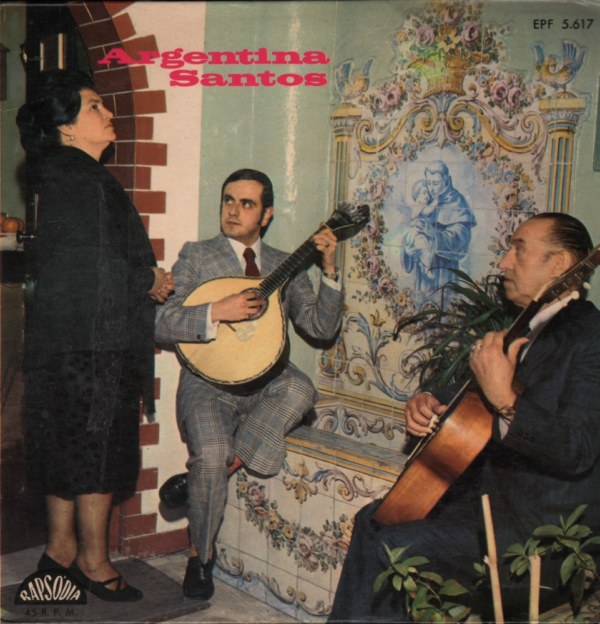
Argentina Santos, EP Rapsodia, 1972
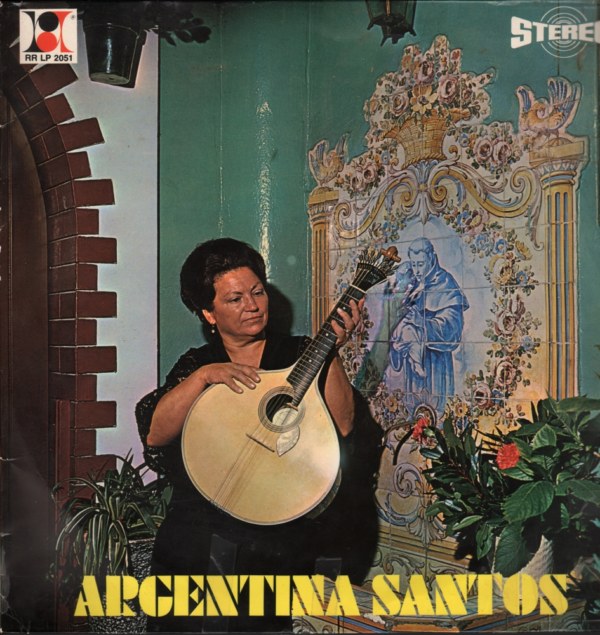
Argentina Santos, LP Riso e RItmo, 1968
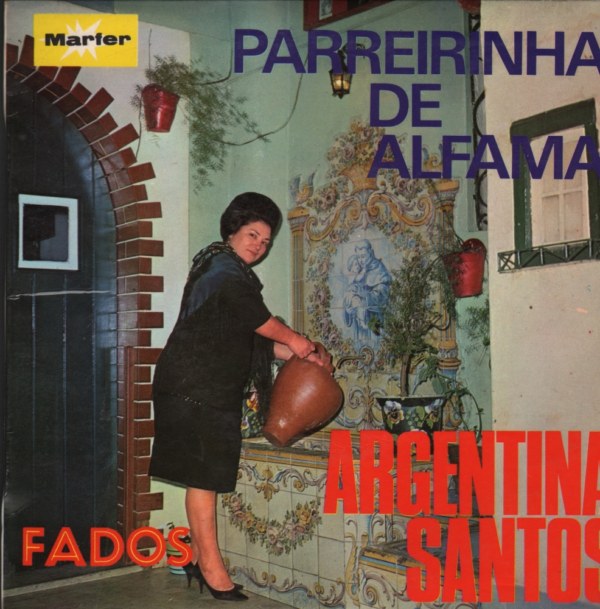
Argentina Santos, Parreirinha de Alfama, EP Marfer, 1968
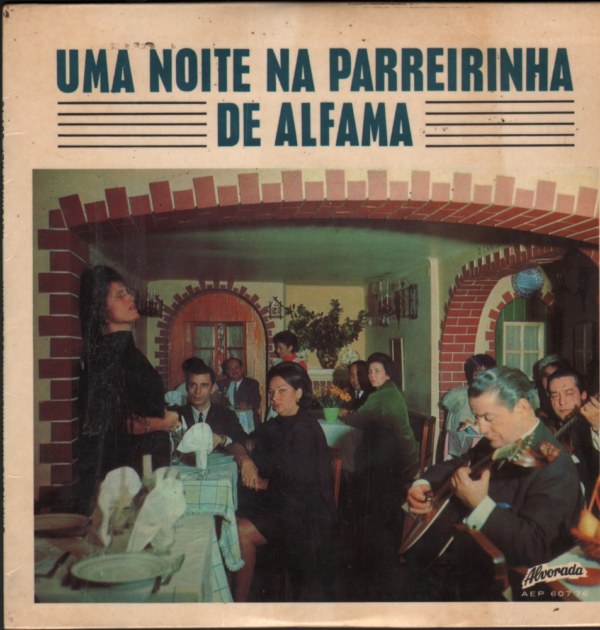
Argentina Santos, Uma Noite Na Parreirinha, EP Alvorada, 1966
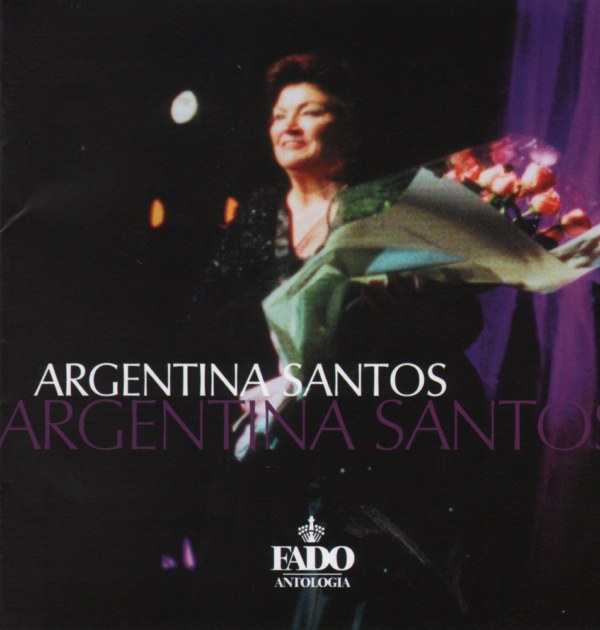
Argentina Santos, Col. Antologia, CNM, 2004
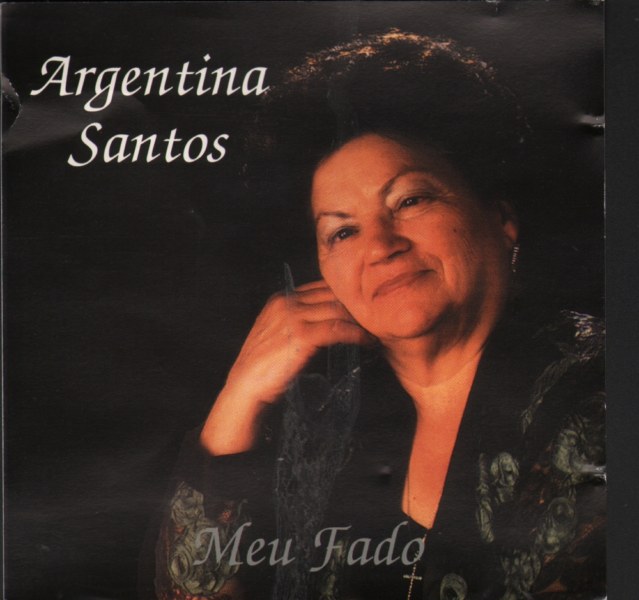
Argentina Santos, Meu Fado, Discossete, 1995
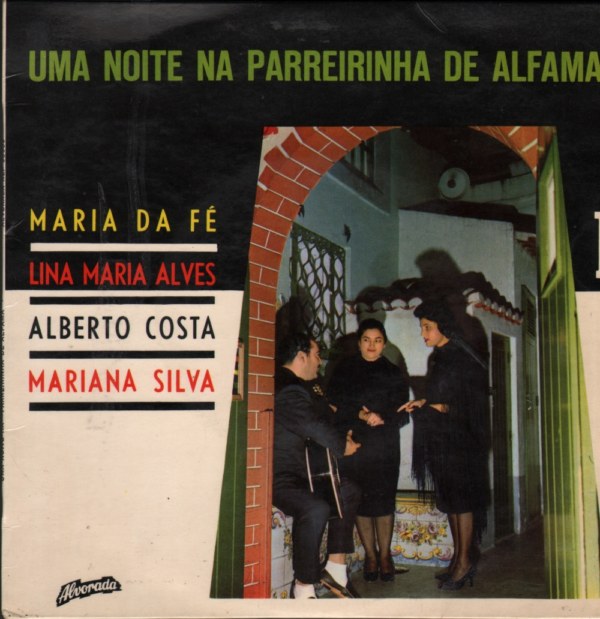
Argentina Santos, Uma Noite na Parreirinha de Alfama 1, EP Alvorada, Déc. de 1960
